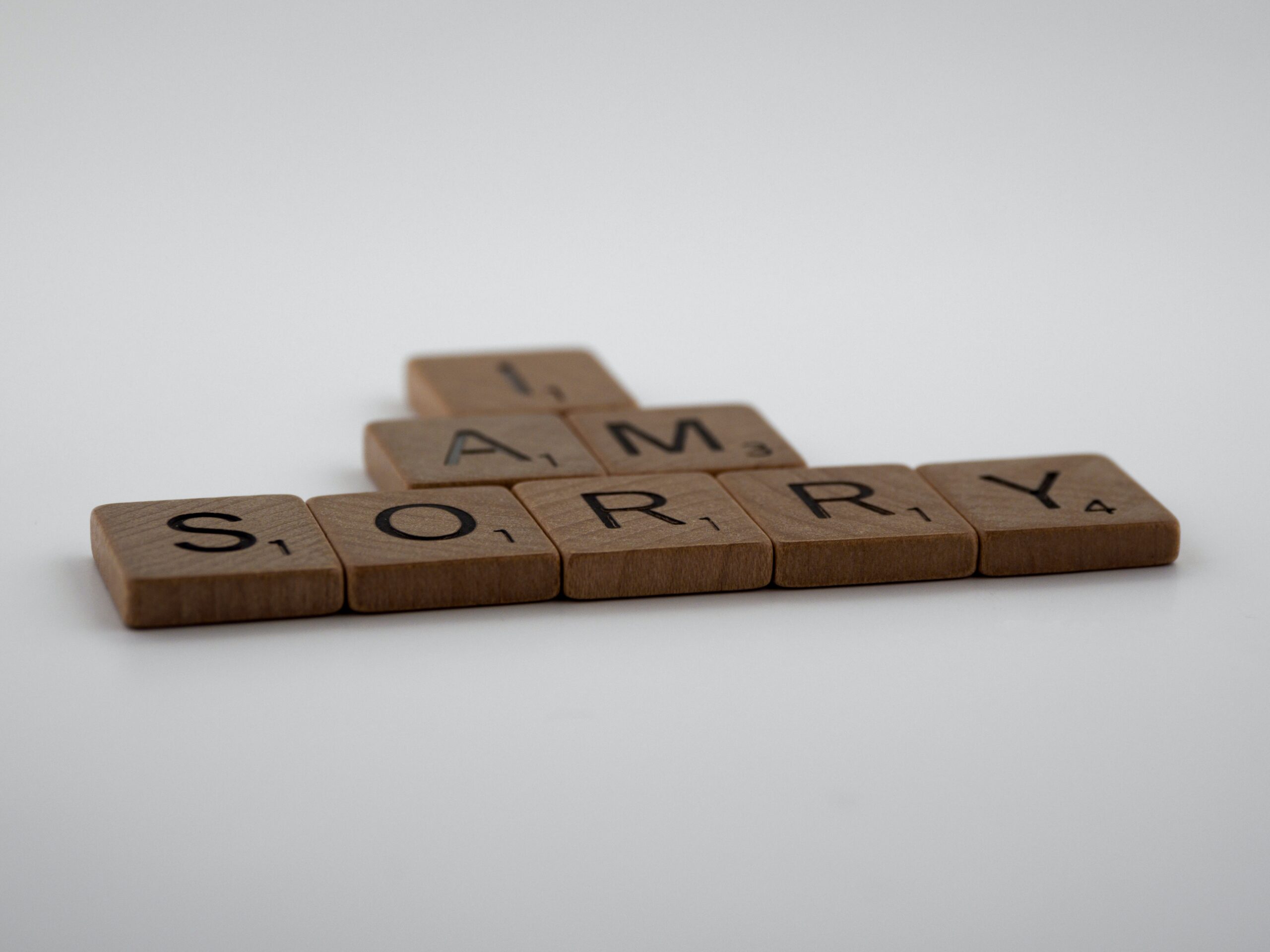A sincere apology does not include if’s and but’
I’m sorry for what happened but.. But what? My apologies but if… Stop right there .
An apology should not have these words but and ifs.
If you did something wrong to someone, it is only wise that you say sorry without attaching conditions.
Most times we get the act of apologising wrong because we don’t even apologise sincerely to ourselves.
For instance, if you disrespect yourself or probably tolerated a form of disrespect from anybody.
Then, you make up excuses instead of offering a sincere apology to yourself.
How do you expect to apologise truthfully or sincerely to others?

To apologise sincerely to other people you need to learn how to apologise in a truthful manner to yourself.
This skill can be learned, it takes dedication, practise, and consistency.
Why these conjunctions ifs and buts are not acceptable in an apology
If you are asking this question “acceptable by who?
Then, there is a high possibility that you are a defaulter.
Honestly, sorry is like a pronounced judgement; in the law court when a judge gives a verdict you do not hear things like “but” or “if only you didn’t”.
This is applicable with an apology, It is a final verdict for a particular situation.
Therefore when you add “ifs” and “buts” to an apology, it interrupts the verdict/ final Judgments.
If you are wrong, apologise to the individual without additional talks.
Stop making up excuses or trying to claim rights while apologising.
This is not the appropriate thing to do. If you have certain issues you want to settle, do that in a separate time.
When it’s time to say sorry, do it without if’s or but’s.
What is a sincere apology?
In this context, a sincere apology is simply an apology without if’s and but’s.
It is a genuine or heartfelt apology that is devoid of excuses.
When you offer a sincere apology it doesn’t matter if you are right or wrong, it simply shows that you are remorseful about the misunderstanding.
If you still harbour resentment concerning the matter, try to sort that out before you apologise.
On a more serious note, if you don’t feel sorry why then should you apologise.
10 reasons you should not add ifs and buts to an apology
1. It sounds incomplete
Hi Jenny, I want to apologise for what happened but…But what?
This is a major disconnection that shouldn’t be found in that discussion.
Believe me when I say at this point every apology you have to make will mean nothing to the individual.
All they really want to hear is the other part of the statement.
They start asking themselves questions like;
- Why did she or he say it?
- Does she or he still believe they were right?
- If they still believe that, why exactly did she or he apologise in the first place?
Even if you say “never mind” or “don’t worry about it”, you have already made it clear to the individual that your apology was triggered by something other than sincerity.
You have completely ruined your chance of a sincere apology.
Takeaway
Do not apologise until you feel completely sorry and ready to apologise without using ifs or but.
2. Apology with a motive

When you apologise with these two words if and but, your apology doesn’t seem real or true.
It sounds like the only reason you are apologising is because you still had a point to thrash.
You probably didn’t say enough, therefore you’re trying to get everything out now.
Have you ever been in a situation where someone apologised to you with a but?
Can you remember how you felt at that moment?
You were probably wondering;
- Why did they even apologise?
- What is the motivating reason?
- Were they forced?
- Do they have something else to say to you?
At this point, this apology is no longer sincere, it feels like an apology with a motive.
Before you apologise to anyone, ask yourself this simple question; “what is my motive?” Is it positive or negative?
3. Claiming right:
When you use if’s or but’s while apologising, it feels like you still feel right.
If you were wronged, why exactly do you need to apologise.
On the other hand if you were right but certain supporting factors or evidence show that you are wrong; it is natural to feel sad, depressed and unhappy.
In this scenario I am not asking you to apologise.
We all know that accusations, especially when you are the victim, hurt a lot.
However, if you decide to apologise in order to maintain or rebuild the relationship that is totally your decision.
No one is forcing you to apologise, if you choose to, you shouldn’t add “ifs” or “buts”.
This might not be what you want to hear but this is the truth.
Make no apologies if it is not sincere.
For your apology to be sincere it must be devoid of “ifs”and”buts“.
4. A continuous cycle of blame:
One of the greatest lessons anyone can learn is the ability to accept responsibility.
When you accept responsibilities for your wrongs it showcases you as an accountable individual.
However, if you can’t accept responsibilities, you result in using apologies as an excuse to apportion blame.
Note: The fact that you accept responsibility for your wrongdoings does not mean that the other party/parties will do the same.
If you want to apologise do that sincerely as a sign of acceptance of your responsibility.
5. It is fake
If you do not want to apologise when you default, that is your decision to make.
Don’t apologise with “ifs” and “buts” this makes your apology sound fake.
I wouldn’t want someone to apologise to me without including conjunctions and repeating everything that transpired.
A real apology seeks forgiveness and peace.
6. It can lead to further disagreement
When an apology includes a but or an if, it opens up a chance for further argument.
Just like you want to be the right person, the other party also wants this title.
This will ruin the entire purpose of the apology.
Conclusion
If you are not ready to apologise, or you still feel the need to prove your point. Do that if it will make you happy.
This is not actually a problem, however, it becomes a problem when you are trying to make your point while apologising.
A sincere apology does not include if’s and but’s. Whenever you want to apologise, make sure you remember this.


